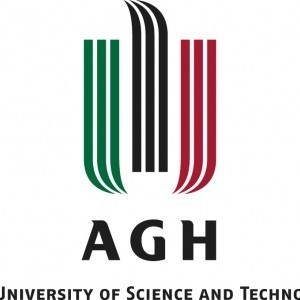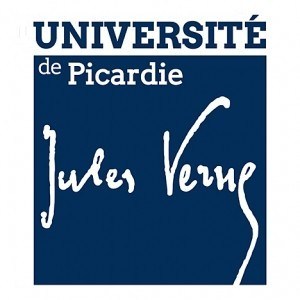Photos of university / #agh.krakow
The Materials Engineering: Functional Materials programme at AGH University of Science and Technology offers students a comprehensive education in the design, development, and application of advanced materials that exhibit specific, desirable properties for various technological and industrial purposes. This interdisciplinary programme is aimed at preparing engineers capable of contributing to innovative solutions in fields such as electronics, energy storage, sensors, bioengineering, and smart materials. Students will gain in-depth knowledge of the structure-property relationships in materials, with a focus on functional materials including ceramics, polymers, composites, and metallic alloys, which are engineered to perform specific functions beyond traditional mechanical roles.
Throughout the course, students will explore topics such as nanomaterials, biomaterials, energy materials, and materials used in environmental protection. The curriculum combines theoretical foundations with practical skills, including laboratory work, nano- and microstructure analysis, materials characterization techniques, and design of experiments. The programme emphasizes sustainable development and the environmental impact of materials, encouraging students to develop innovative, eco-friendly solutions for modern technological challenges.
Students will engage with cutting-edge research and collaborate with industry partners, preparing them for careers in research and development, manufacturing, quality control, and technical consulting in both domestic and international markets. The programme also offers opportunities for specializations in areas such as electronic materials, composite materials, and smart materials, fostering a multidisciplinary approach to materials engineering.
Graduates of this programme will be equipped with the technical expertise and creative problem-solving skills necessary to lead projects in the development of new functional materials, contribute to technological advancements, and support the sustainable and efficient use of resources in various sectors. The education at AGH University combines rigorous academics with hands-on training, ensuring that students are well-prepared for the demands of the rapidly evolving materials engineering industry.
The Materials Engineering: Functional Materials program at AGH University of Science and Technology offers students a comprehensive education in the design, synthesis, characterization, and application of advanced functional materials. This multidisciplinary program integrates principles from materials science, chemistry, physics, and engineering to prepare graduates for innovative solutions in various high-tech industries. Throughout the course, students gain knowledge about the structure-property relationships of different materials, focusing on functional attributes such as electrical conductivity, magnetism, optical properties, and catalytic activity. The curriculum emphasizes modern fabrication techniques, including nanotechnology, surface modification, and composite development, enabling students to create materials with tailored functionalities for specific applications.
Students will explore a broad spectrum of materials, including polymers, ceramics, composites, and nanomaterials, and learn how their unique properties can be harnessed in real-world scenarios. The program features a strong practical component, with laboratory work, project-based assignments, and internships with industry partners, fostering hands-on skills and professional experience. Specialization modules allow students to focus on particular areas such as energy materials, biomaterials, sensors, or electronic components, aligning their education with current market needs and technological trends.
The program also emphasizes sustainable development and innovation, encouraging students to develop environmentally friendly and cost-effective materials. They will learn about the latest research developments and technological advancements in the field of functional materials, preparing them for careers in research and development, industry, or academia. Graduates of this program will be equipped with the critical thinking and technical expertise necessary to contribute to the development of next-generation materials that address global challenges such as energy storage, environmental protection, and healthcare. The program is designed for students passionate about science and engineering who aspire to be leaders in the field of materials technology, pushing the boundaries of what is possible through innovative materials solutions.
Candidates are asked to attach to the e-Rekrutacja system the following documents:
Scan of the
passport page with your photo and personal data
.
Scan of
signed Curriculum Vitae
.
Scan of signed cover letter (
template HERE
), in which a candidate is obliged to show special predispositions to study at the chosen programme of study.
Scan of the
official certificate
confirming your command of the
language of instruction
(Polish or English) – list of recognised English certificates
HERE
.
Scan of the
higher education diploma
with legalization (or apostille)
with
annotation
(or as a separate document) stating, that the diploma entitles to apply for admission to second-cycle degree programmes at universities of every type in the country in which you received the above mentioned diploma.
Scan of the
official transcript of records with scale of grades
included, confirmed by the University.
Financing studies in the field of Materials Engineering: Functional Materials at AGH University of Science and Technology can be obtained through various options available to both Polish and international students. The primary source of funding for Polish students is the state-funded scholarship program, which covers tuition fees for students who meet specific academic and financial criteria. These scholarships are awarded based on merit and financial need, and applicants are required to submit the relevant documentation through the university’s scholarship office. Additionally, Polish students can apply for government or regional grants dedicated to supporting engineering students, which can significantly reduce or eliminate tuition costs.
International students enrolled in the Materials Engineering: Functional Materials program have several avenues for financial assistance. AGH University offers a limited number of merit-based scholarships to international students, which are awarded based on academic achievement and extracurricular accomplishments. These scholarships may cover partial or full tuition fees. Furthermore, international students are encouraged to seek external funding sources, such as scholarships from their home governments, international organizations, or private foundations, which can assist in covering tuition and living expenses.
Apart from scholarships, students can explore student loan programs available through Polish financial institutions or international lending agencies, subject to eligibility criteria. Some students also consider part-time employment opportunities available on and around the university campus, which provide supplementary income to support their studies and living costs. The university’s career center offers guidance on internships and part-time jobs in the local industry, which can help students finance their education while gaining practical experience.
It is also advisable for students to participate in university-organized research projects and internships, which sometimes include stipends or allowances that contribute to financing their studies. Finally, students should regularly check the official university website and contact the university’s student financing office for updated information on available scholarships, grants, and funding programs relevant to the Materials Engineering: Functional Materials program at AGH University of Science and Technology.
The Materials Engineering: Functional Materials programme at AGH University of Science and Technology offers a comprehensive education focused on the development and application of advanced materials with specific functionalities. This programme is designed to equip students with in-depth knowledge of the structure, properties, and processing of materials such as polymers, ceramics, metals, composites, and semiconductors, emphasizing their functional applications in various industries. The curriculum covers fundamental sciences including physics, chemistry, and materials science, alongside specialized courses in nanotechnology, surface engineering, and smart materials. Students gain practical skills through laboratories, project work, and internships, enabling them to participate in innovative research and develop new materials for use in electronics, biotechnology, energy storage, sensors, and other high-tech fields.
The programme promotes interdisciplinary learning, integrating knowledge from chemistry, physics, and engineering to ensure graduates are capable of designing materials with tailored properties. Students are encouraged to engage in research activities at the university's laboratories, which are equipped with modern instrumentation for characterisation and testing of materials. The programme also prepares students for careers in industry, research institutes, and academia, with an emphasis on innovation and practical problem-solving. Graduates are equipped to work in sectors such as electronics, automotive, aerospace, energy, and environmental protection, where functional materials are crucial for technological advancement.
The teaching staff comprises experienced researchers and industry professionals, ensuring that the education remains aligned with current technological trends and industry needs. The programme is typically delivered in a part-time or full-time format, with opportunities for international exchange programmes and collaboration with global research entities. Graduates receive a Master’s degree in Materials Engineering, opening pathways to PhD studies or employment in competitive sectors. The programme aims to produce highly skilled professionals capable of contributing to the development of sustainable and smart materials that address contemporary technological challenges.










